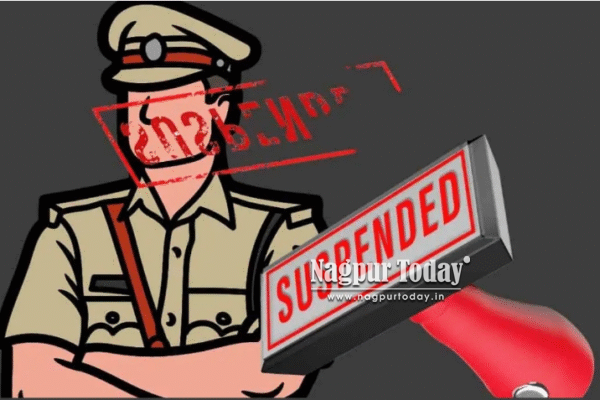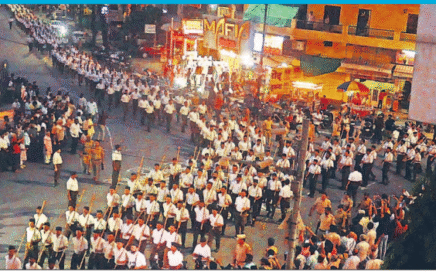
Nagpur: In a sweeping crackdown on police misconduct in Nagpur, five personnel — including two officers and three constables — have been suspended for serious dereliction of duty that led to brutal crimes, including murders, and a false narcotics case. The action was ordered by Deputy Commissioner of Police (DCP) Niketan Kadam after a probe revealed glaring lapses in procedure and accountability, a local daily reported.
The suspended personnel include Assistant Police Inspector Tulsiram Dhakulkar, Sub-Inspector Raosaheb Khairnar, and constable Pritam Thakur from Yashodhara Nagar Police Station. From New Kamptee, head constables Pravin Manapure and Luvkush Bhanose have also been shown the door for malpractice.
According to police sources, the action is tied to two back-to-back murder cases in the Yashodhara Nagar area. The negligence of Khairnar and Thakur in handling complaints against a local goon, Sohail Chand, ultimately resulted in his broad daylight murder at Vandevi Nagar Chowk last Friday. Alarmingly, the accused had earlier approached police but, frustrated by inaction, chose vigilante justice.
API Dhakulkar has been held accountable not just for failing to prevent this crime, but also for inaction in an earlier murder case. What has added fuel to the fire is Dhakulkar’s questionable track record — his name surfaced again in a shocking fake drug case.
He and his team had allegedly framed 43-year-old cloth trader Murtuza Ansari in a narcotics case involving MD drugs. CCTV footage later proved that drugs had been planted in Ansari’s vehicle. Although he was discharged from the case, the Rs 16,000 seized during the raid has yet to be returned to him.
This isn’t Dhakulkar’s first brush with controversy. A few years ago, while posted at Pachpaoli Police Station, he was involved in a similar MD drugs case that prompted a High Court intervention and transfer of five officers to police headquarters.
The misconduct extended beyond Yashodhara Nagar. In New Kamptee, head constables Manapure and Bhanose were suspended for malpractice following separate complaints.
The DCP’s decision to suspend the officers has sent shockwaves through the city police department, with insiders calling it a wake-up call for stricter internal vigilance. The developments have ignited public debate over police accountability, with citizens and rights activists urging systemic reforms, better training, and an overhaul of complaint redressal mechanisms within the force.
This high-profile disciplinary action, observers say, underscores a harsh truth: when the protectors turn perpetrators—or enablers—justice itself becomes the casualty.














